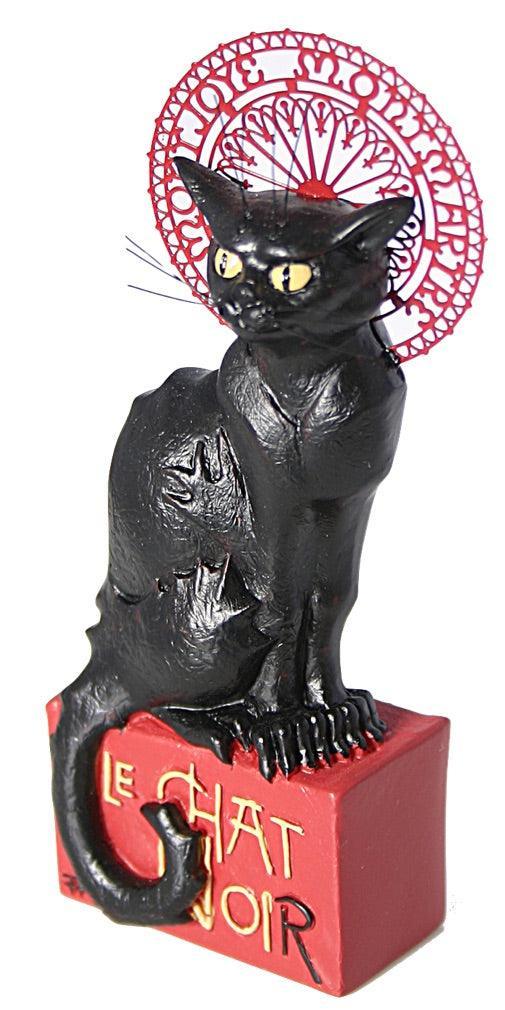Le Chat Noir Black Cat Montmartre Figurine Statue by Steinlen, Assorted Sizes
Le Chat Noir Black Cat Montmartre Figurine Statue by Steinlen, Assorted Sizes
SKU:STE01
In stock
Couldn't load pickup availability
- Part of the Parastone Museum Collection of noteworthy museum statues, paintings and cultural artifacts.
- Two Sizes
- Small, 8 in H x 3.5 in W x 1.25 in D. Weight 1.6 lbs. Gift box not included. (PN STE01)
- Mini, 4.25 in H x 2 in W x 1 in D. Weight 8 ounces. Gift box included. (PN PA15STE)
Poster for La Tournee du Chat Noir (Black Cat, 1896)
In 1881, Rudolphe Salis opened the Le Chat Noir Cabaret on the Boulevard Rochechouart (which later moved to the Rue de Laval). It soon became a legendary safe haven for the stage arts and Steinlen resided at its heart. He designed scenery, worked on the popular shadow plays, and in particular, he designed the famous poster which adorned Paris' walls. The black and red cat (the colors of anarchy) became Montmartre's symbol, the enclave and gathering site of artists. The text: Montjoie Montmartre (Montmartre my joy) halos the beast's mystical head. The press freedoms act and new printing methods gave Salis the opportunity to also publish a magazine. Le Chat Noir became a great success, even outside France, and this radiated onto Steinlen as its principal illustrator. Cats always played a major role in Steinlen's work. He loved the stray cats on Montmartre's roofs as did his colleagues, and adopted many of them to his wife's dismay.
Theophile-Alexandre Steinlen (1859-1923) - Steinlen stopped taking philosophy at a university in his home town of Lausanne prematurely to start working in Mulhouse as a textile designer. The socially committed, kindhearted artist left for Paris in 1881 with his wife, where they moved to the hill of Montmarte, a neighborhood which was about to develop into the epicenter of the French avant-garde. He befriended the painter Adolphe Willette who introduced him to the artistic circles around the Le Chat Noir Cabaret. In the early 1890's, Steinlen still painted traditional subjects such as landscapes, flower still life and nudes, and these were exhibited for the first time at the Salon des Independents. Later work increasingly displayed social-realist tendencies. Steinlen became a sought after illustrator for legendary magazines such as Le Rire and Gil Bas. Some of his illustrations appeared pseudonymously in order to prevent political repercussions.














